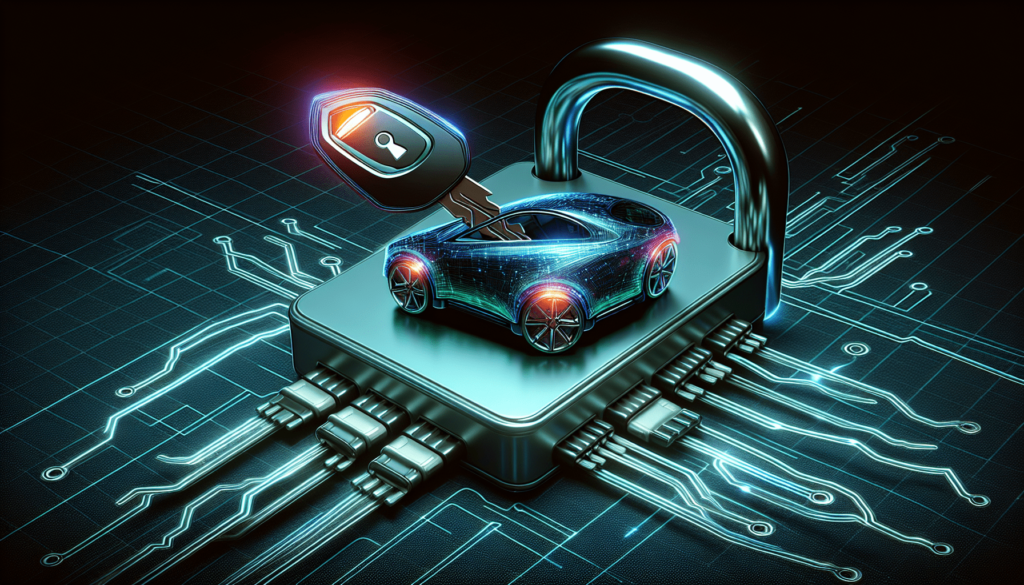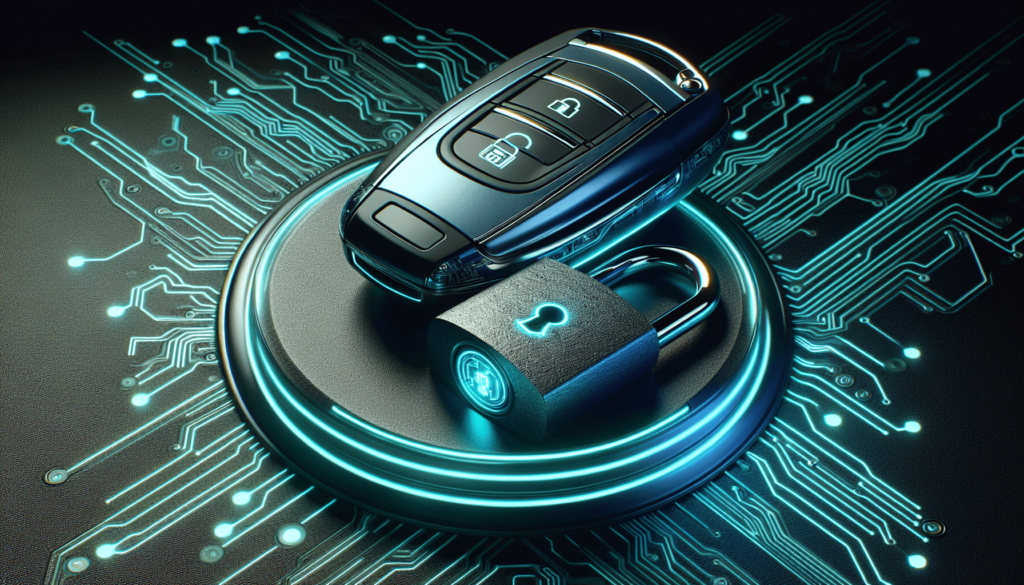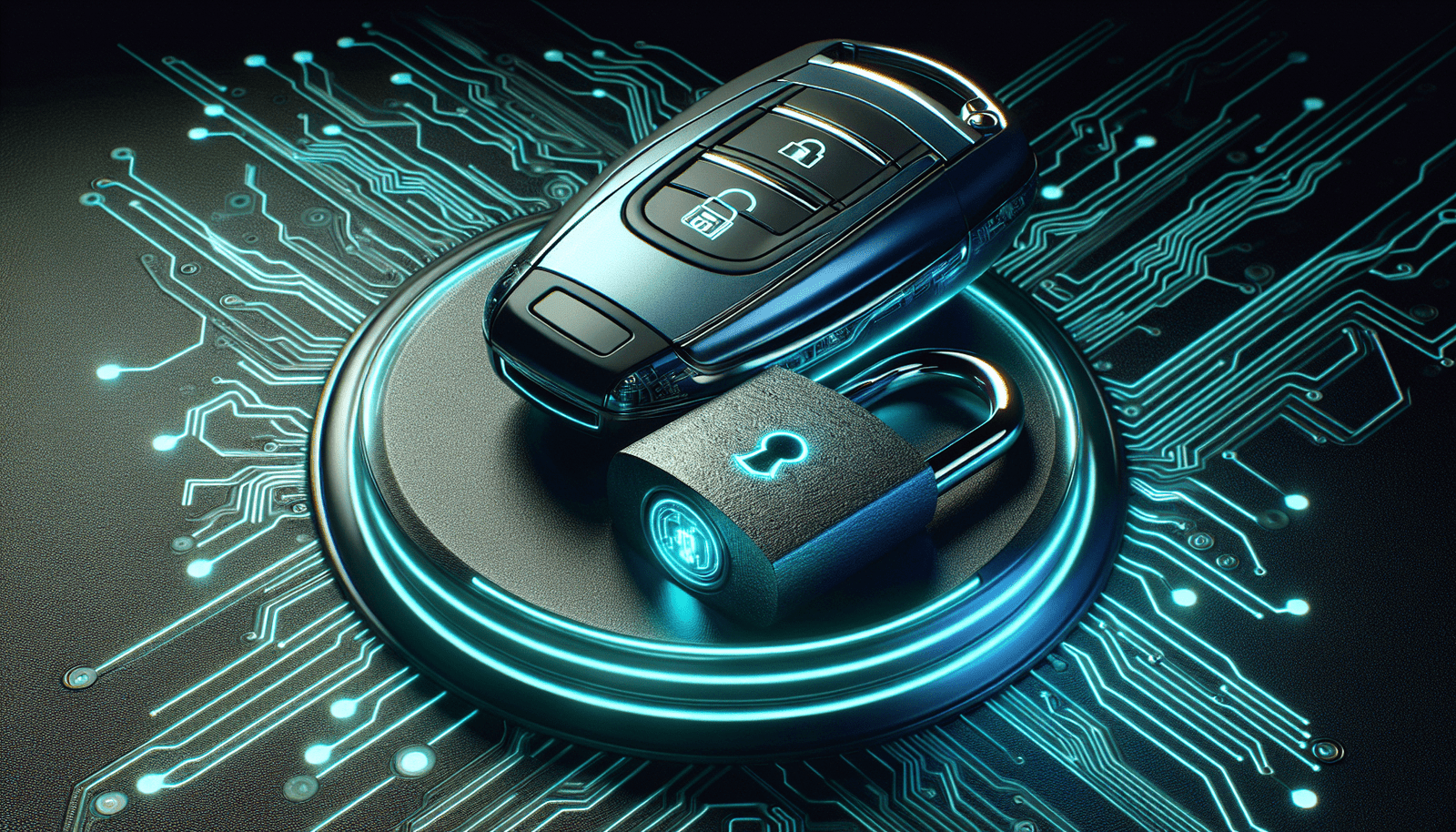In the rapidly expanding world of electric vehicles, ensuring the security of these innovative modes of transportation has become a pressing concern. As more electric cars hit the streets, the question arises: are there advancements in electric vehicle cybersecurity measures? The increasing reliance on technology within electric vehicles has prompted researchers and developers to implement cutting-edge solutions to protect against potential cyber threats. In this article, we will explore the latest developments in electric vehicle cybersecurity and how they are propelling the industry forward in a safer, more secure direction.
Importance of Electric Vehicle Cybersecurity
Electric vehicle cybersecurity is of utmost importance in today’s digital age. With the increasing adoption of electric vehicles (EVs) around the world, ensuring the protection of personal data, preventing remote attacks, and ensuring the safety of passengers and drivers have become paramount concerns. This comprehensive article will delve into the current challenges in electric vehicle cybersecurity, advancements in cybersecurity measures, collaboration between automakers and cybersecurity experts, legislation and regulatory measures, integration of artificial intelligence, ethical hacking and penetration testing, incorporation of blockchain technology, advancements in over-the-air updates, and education and awareness initiatives.
Protection of Personal Data
With the advancement of technology, electric vehicles are now connected to various devices and networks, making them vulnerable to cyber threats. Personal data, including sensitive information such as location data, driving habits, and even financial details, may be at risk if proper cybersecurity measures are not in place. Ensuring the protection of personal data is crucial to maintain the privacy and security of EV owners.
Prevention of Remote Attacks
Electric vehicles are not exempt from the possibility of remote attacks. As more vehicles become connected to the internet, the potential for hackers to gain unauthorized access and take control of vehicle functions increases. This poses grave threats not only to the safety of the passengers but also to the overall security of the transportation system. Preventing remote attacks is vital to ensure the integrity and reliability of electric vehicles.
Safety of Passengers and Drivers
The safety of passengers and drivers should be the top priority in the field of electric vehicle cybersecurity. Any compromise in the cybersecurity of EVs may result in life-threatening situations, such as unauthorized manipulation of braking systems or steering controls. It is imperative to implement robust cybersecurity measures to protect the physical safety of individuals relying on electric vehicles for transportation.
Current Challenges in Electric Vehicle Cybersecurity
Complexity of Systems
Electric vehicles consist of complex systems that are interconnected and rely heavily on software and communication networks. The complexity of these systems presents significant challenges in terms of identifying and managing potential vulnerabilities. With numerous components, interfaces, and software applications, it becomes increasingly difficult to ensure the overall security of the vehicle.
Lack of Industry Standards
The lack of industry standards is another challenge in electric vehicle cybersecurity. As the market for electric vehicles grows, different manufacturers are implementing distinct cybersecurity protocols, making it difficult to establish a unified approach to cybersecurity. This lack of standards can make it easier for hackers to exploit vulnerabilities in the systems of different electric vehicle models.
Potential for Vehicle Hacking
The potential for vehicle hacking is a major concern in the realm of electric vehicle cybersecurity. Hackers can exploit vulnerabilities in the software, firmware, or communication systems of an electric vehicle, gaining unauthorized access and control over critical functions. With the increasing connectivity of EVs, the potential for malicious actors to remotely control vehicles and endanger the lives of passengers and drivers is a significant challenge that needs to be addressed.

This image is property of pixabay.com.
Advancements in Electric Vehicle Cybersecurity Measures
Enhanced Encryption Standards
Advancements in electric vehicle cybersecurity measures include the implementation of enhanced encryption standards. Encryption plays a crucial role in protecting data transmitted between different components and systems within an electric vehicle. By employing robust encryption algorithms, the security of data can be strengthened, reducing the risk of unauthorized access and data breaches.
Multi-Factor Authentication
Multi-factor authentication is another advancement in electric vehicle cybersecurity measures. By requiring multiple forms of authentication, such as passwords, biometrics, or physical tokens, the likelihood of unauthorized access to vehicle systems is greatly reduced. This additional layer of security adds an extra barrier for potential hackers, ensuring the safety and integrity of electric vehicles.
Intrusion Detection Systems
Intrusion detection systems (IDS) are essential tools in electric vehicle cybersecurity. These systems monitor the network traffic and identify any suspicious or malicious activities. IDS can detect and alert the vehicle owner or manufacturer about potential unauthorized access attempts, enabling timely action to mitigate cybersecurity risks. Implementing IDS in electric vehicles enhances the overall security posture, offering proactive protection against cyber threats.
Collaboration between Automakers and Cybersecurity Experts
To address the evolving challenges in electric vehicle cybersecurity, collaboration between automakers and cybersecurity experts is crucial. By combining their expertise and resources, both parties can contribute to developing robust cybersecurity solutions and mitigating potential risks. Collaboration can take various forms, including sharing threat intelligence, conducting joint testing and evaluation of security measures, and providing necessary cybersecurity training for engineers and developers.
Sharing of Threat Intelligence
Sharing threat intelligence between automakers and cybersecurity experts is instrumental in staying ahead of emerging cyber threats. By sharing information on vulnerabilities, attack vectors, and potential mitigations, the industry as a whole can work together to develop effective countermeasures. This collaborative approach enhances the overall cybersecurity ecosystem and protects electric vehicles from evolving threats.
Joint Testing and Evaluation
Conducting joint testing and evaluation of cybersecurity measures ensures the effectiveness of implemented solutions. Automakers can collaborate with cybersecurity experts to subject electric vehicles to rigorous testing scenarios, aiming to identify potential vulnerabilities and weaknesses. By working together, both parties can develop and deploy robust cybersecurity measures to protect electric vehicles from potential attacks.
Cybersecurity Training for Engineers
Cybersecurity training for engineers and developers involved in the design and development of electric vehicles is essential. By providing education and training on best practices, secure coding techniques, and vulnerability management, automakers can empower their engineering teams to build secure systems. Collaboration between automakers and cybersecurity experts in providing relevant training programs can greatly contribute to enhancing the cybersecurity expertise within the automotive industry.
Legislation and Regulatory Measures
Effective legislation and regulatory measures play a crucial role in promoting and enforcing electric vehicle cybersecurity. Governments around the world must take steps to establish mandates for cybersecurity standards in electric vehicles. Such mandates can ensure that automakers comply with certain cybersecurity requirements and implement necessary measures to safeguard electric vehicles and their owners.
Government Mandates for Cybersecurity
Government mandates for cybersecurity in electric vehicles can set minimum standards that automakers must adhere to. These mandates can outline specific requirements for encryption, authentication, secure communication protocols, and vulnerability management. By mandating cybersecurity measures, governments can safeguard the interests of the public and promote the safe adoption of electric vehicles.
Establishment of Certification Programs
The establishment of certification programs can further enhance electric vehicle cybersecurity. Governments can work with industry experts to develop standardized certification programs that assess and validate the cybersecurity capabilities of electric vehicles. Certification programs can ensure that vehicles meet specified security criteria, instill consumer confidence, and promote cybersecurity as a crucial aspect of electric vehicle development.
Enforcement of Data Protection Laws
To protect personal data collected by electric vehicles, governments must enforce data protection laws. These laws can outline the responsibilities of automakers in handling and securing personal data, ensuring transparency, and providing mechanisms for individuals to control their data. By enforcing data protection laws, governments can safeguard the privacy and rights of electric vehicle owners.
Integration of Artificial Intelligence
The integration of artificial intelligence (AI) brings significant advancements to electric vehicle cybersecurity. AI-powered solutions can analyze vast amounts of data, detect patterns, and identify anomalies that may indicate potential cyber threats. By leveraging AI technologies, electric vehicles can benefit from behavioral analysis for anomaly detection, predictive threat intelligence, and automated response systems.
Behavioral Analysis for Anomaly Detection
AI can analyze the behavior of electric vehicle systems and their interactions to detect anomalies. By establishing patterns of normal behavior, AI algorithms can identify deviations or suspicious activities that may indicate a cyber attack. Behavioral analysis for anomaly detection enables the proactive identification of potential threats, enabling timely responses to mitigate risks.
Predictive Threat Intelligence
AI can also leverage predictive threat intelligence to anticipate and prevent cyber attacks. By analyzing real-time data from various sources, AI algorithms can identify emerging trends, vulnerabilities, and potential attack vectors. This predictive capability allows automakers to address vulnerabilities before they are exploited, enhancing the overall cybersecurity posture of electric vehicles.
Automated Response Systems
With the integration of AI, electric vehicles can benefit from automated response systems. AI algorithms can swiftly respond to detected threats, initiate countermeasures, and isolate compromised systems. Automated response systems minimize the response time to cyber incidents, reducing the potential damage caused by malicious activities.

This image is property of pixabay.com.
Ethical Hacking and Penetration Testing
Ethical hacking and penetration testing are crucial components of electric vehicle cybersecurity. By identifying vulnerabilities, assessing the effectiveness of security measures, and continuously monitoring for weaknesses, automakers can proactively strengthen the cybersecurity of electric vehicles.
Identifying Vulnerabilities
Ethical hackers and penetration testers can simulate real-world cyber attacks to identify vulnerabilities in electric vehicle systems. By attempting to exploit these vulnerabilities, security professionals can provide valuable insights into potential weaknesses that need to be addressed. Identifying vulnerabilities allows automakers to prioritize and allocate resources to mitigate the most critical risks.
Assessing Patch Effectiveness
Continuous assessment of the effectiveness of security patches is essential in maintaining the cybersecurity of electric vehicles. Through ethical hacking and penetration testing, automakers can assess the efficacy of security updates and patches intended to fix identified vulnerabilities. This iterative process helps ensure that the applied patches adequately address the identified weaknesses and protect against potential cyber attacks.
Continuous Monitoring for Weaknesses
Automakers should implement continuous monitoring systems to identify and address emerging weaknesses in electric vehicle cybersecurity. Continuous monitoring allows for real-time detection of anomalies and potential intrusions, enabling timely responses. By monitoring the network traffic, system logs, and other relevant data, automakers can proactively protect electric vehicles against evolving cyber threats.
Incorporation of Blockchain Technology
The incorporation of blockchain technology can provide enhanced security in electric vehicle systems. Blockchain’s decentralized and immutable nature offers several benefits in terms of data integrity, transaction records, and security architecture.
Immutable Transaction Records
Blockchain technology can ensure the integrity of transaction records in electric vehicles. By storing transaction data immutably on a distributed ledger, it becomes nearly impossible for unauthorized entities to manipulate or alter records. Immutable transaction records provide transparency and trust in the data generated by electric vehicles, enhancing cybersecurity and accountability.
Enhanced Data Integrity
Blockchain technology can enhance the data integrity of electric vehicle systems. By utilizing blockchain-based solutions, data stored within electric vehicles can be verified, audited, and protected from unauthorized modifications. The transparent and tamper-resistant nature of blockchain ensures that data remains secure and trustworthy throughout its lifecycle.
Decentralized Security Architecture
The decentralized nature of blockchain’s security architecture can significantly enhance the cybersecurity of electric vehicles. By distributing security mechanisms across a network of nodes, blockchain minimizes the risk of a single point of failure. This decentralized approach ensures that even if one node or component is compromised, the overall system remains resilient and resistant to attacks.

Advancements in Over-the-Air Updates
Over-the-air (OTA) updates play a vital role in maintaining the cybersecurity of electric vehicles. Advancements in OTA updates enable secure distribution of software updates, real-time vulnerability patching, and authentication of software sources.
Secure Distribution of Software Updates
OTA updates ensure the secure distribution of software updates to electric vehicles. These updates can include security patches, bug fixes, and software enhancements, among other things. By establishing secure communication channels, automakers can distribute updates without compromising the integrity and security of the update process.
Real-Time Vulnerability Patching
OTA updates facilitate real-time vulnerability patching in electric vehicles. As new vulnerabilities are discovered, automakers can swiftly develop and distribute patches to address these security risks. Real-time vulnerability patching ensures that electric vehicles are protected against emerging threats and minimizes the window of opportunity for potential attacks.
Authentication of Software Sources
Authentication of software sources is essential in maintaining the cybersecurity of electric vehicles. OTA updates must ensure that only authorized and verified software sources can distribute updates. By implementing robust authentication mechanisms, automakers can mitigate the risk of malicious actors distributing compromised or malicious software to electric vehicles.
Education and Awareness Initiatives
Education and awareness initiatives are crucial in promoting the importance of electric vehicle cybersecurity. By providing training programs for EV owners, conducting cybersecurity awareness campaigns, and offering guidelines for secure vehicle usage, stakeholders can ensure that individuals are well-informed and equipped to protect themselves and their electric vehicles.
Training Programs for EV Owners
Training programs specifically designed for EV owners can educate individuals on the importance of cybersecurity and provide guidance on best practices for secure vehicle usage. These programs can cover topics such as safe charging practices, secure network connections, and recognizing potential cyber threats. By empowering EV owners with knowledge, they can actively contribute to enhancing the overall cybersecurity of electric vehicles.
Cybersecurity Awareness Campaigns
Cybersecurity awareness campaigns can raise public awareness about the risks and importance of electric vehicle cybersecurity. Through various channels, such as social media, online platforms, and public events, these campaigns can educate the general public about potential cyber threats and provide guidance on preventive measures. Cybersecurity awareness campaigns play a pivotal role in fostering a cybersecurity-conscious community.
Guidelines for Secure Vehicle Usage
Providing clear guidelines for secure vehicle usage can help individuals adopt best practices and reduce the risk of cybersecurity incidents. These guidelines can cover topics such as password hygiene, network connections, software updates, and physical security measures. By providing actionable guidance, stakeholders can ensure that electric vehicle owners are equipped with the necessary knowledge to protect themselves and their vehicles.
In conclusion, the importance of electric vehicle cybersecurity cannot be overstated. With the protection of personal data, prevention of remote attacks, and the safety of passengers and drivers at stake, it is crucial to address the current challenges and implement advancements in cybersecurity measures. Collaboration between automakers and cybersecurity experts, legislation and regulatory measures, integration of artificial intelligence, ethical hacking and penetration testing, incorporation of blockchain technology, advancements in over-the-air updates, and education and awareness initiatives play vital roles in ensuring the cybersecurity of electric vehicles. By being proactive and implementing comprehensive cybersecurity strategies, stakeholders can foster a secure and resilient ecosystem for electric vehicles.


